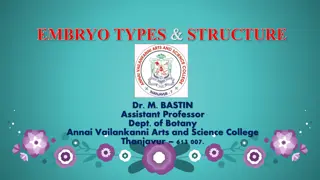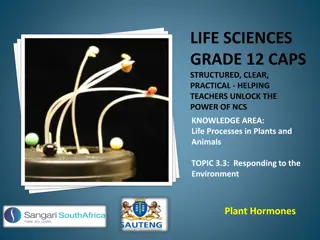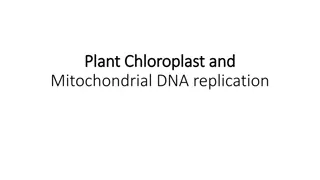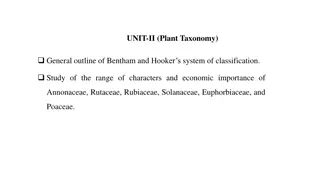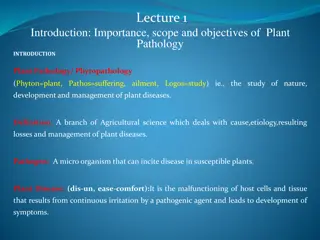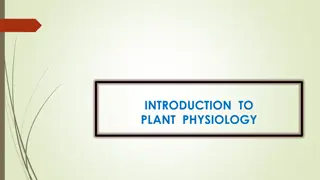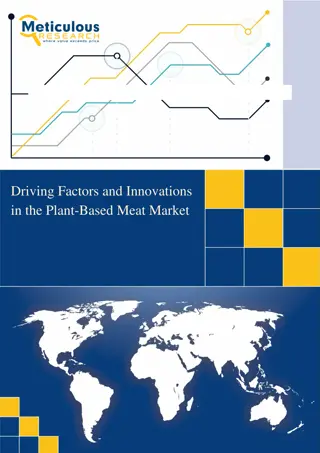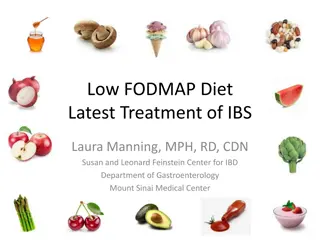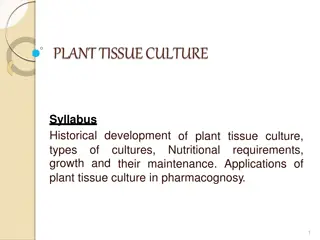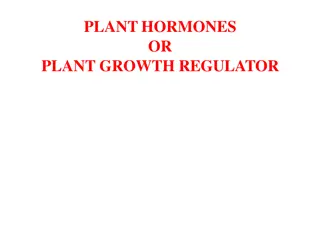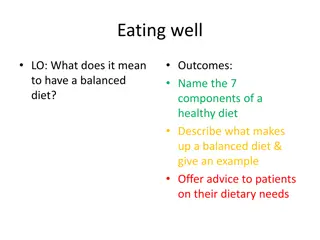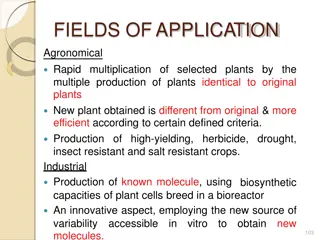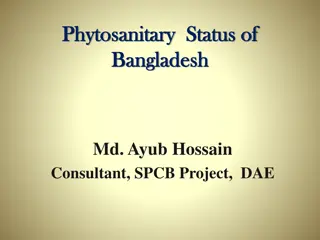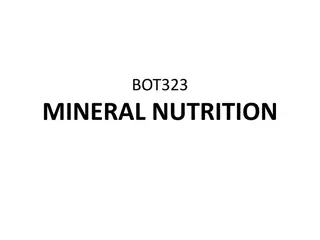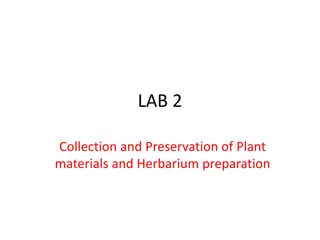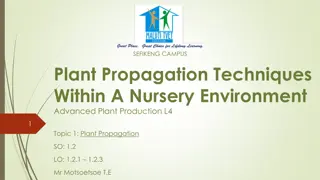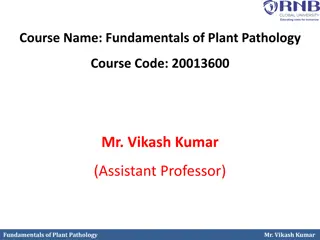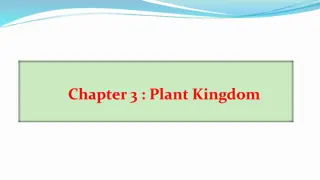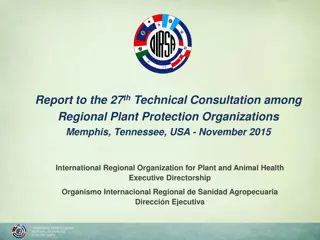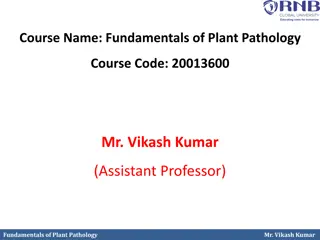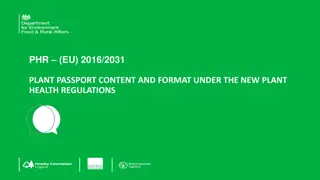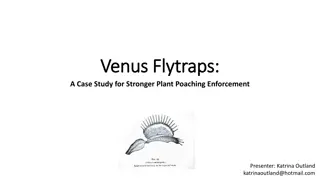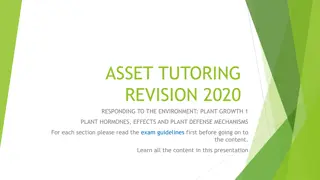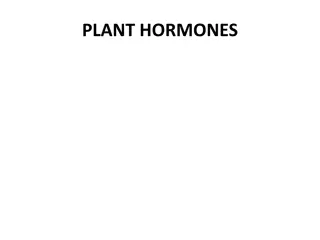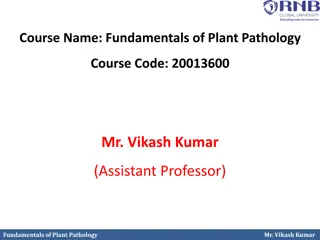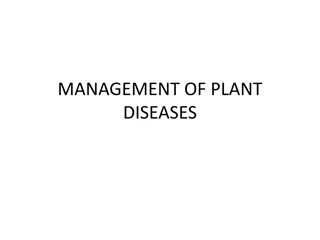Unit 1: Introduction and History of plant pathology
The science of plant pathology, which studies plant diseases and aims to protect the food supply by improving plant survival in unfavorable conditions. Explore the causes of plant diseases, their symptoms, and methods of prevention and control.
5 views • 13 slides
READ [PDF] Dash diet Cookbook for beginners: 365 days of simple, healthy, low-s
\"10 minutes ago - \ndownload Here : https:\/\/bb.filegood.club\/is=B09XZDTRD7\nRead Dash diet Cookbook for beginners: 365 days of simple, healthy, low-sodium recipes to lower blood pressure and live a healthy life. acces\n u Are you looking for a diet that will help you lower your blood pressure
11 views • 6 slides
Amway Nutrilite All Plant Protein Powder 1kg Deutsche Post AG
Amway Nutrilite All Plant Protein Powder is a premium source of protein derived from plant-based ingredients. With each serving, you get a blend of high-quality protein to support your active lifestyle and dietary needs.\nAmway Nutrilite All Plant Protein Powder offers a convenient way to supplement
1 views • 4 slides
Understanding Plant Embryogenesis: A Comprehensive Overview
Plant embryogenesis is a crucial process in the development of plant embryos from fertilized ovules, involving cell division, differentiation, and morphogenesis. This process leads to the formation of seeds, which play a vital role in the plant life cycle. The stages of embryo formation, structure,
0 views • 25 slides
Understanding Plant Tissue Culture: Methods and Requirements
Plant tissue culture involves the in-vitro culture of plant explants under aseptic conditions, covering cell, organ, and suspension cultures. This process, pioneered by German botanist Gottlieb Haberlandt, relies on the totipotency of plant cells. Key requirements include laboratory organization, su
0 views • 18 slides
Understanding Plant Hormones and Their Functions in Plants
Plant hormones play crucial roles in various plant processes such as growth, development, and response to environmental stimuli. Auxins, gibberellins, and abscisic acid are key plant hormones that regulate tropisms, cell division, elongation, flowering, seed germination, and dormancy. Understanding
1 views • 50 slides
Understanding the Importance of a Balanced Diet
A balanced diet is essential for healthy growth and activity, as it provides all necessary nutrients for the body to function efficiently. This presentation explores what constitutes a balanced diet, the five major food groups, and the importance of water intake. Readers are encouraged to consider t
0 views • 6 slides
Plant Mitochondrial and Chloroplast DNA Replication Mechanisms
Plant mitochondria and chloroplasts have intricate DNA replication processes. Mitochondrial DNA replication is independent of the plant cell cycle and is associated with specific proteins in nucleoid complexes. Plant mtDNA contains more genes than animal mtDNA, with a complex structure involving int
1 views • 16 slides
Overview of Bentham and Hooker's Classification System in Plant Taxonomy
Bentham and Hooker's system of classification in plant taxonomy, outlined in Genera Plantarum, provided detailed descriptions of families and genera based on original plant dissections. This classification system has practical value for plant identification, with keys for taxa and subdivisions for l
2 views • 47 slides
Understanding Plant Tissue Culture Media and Their Importance in In Vitro Growth
Plant tissue culture media play a crucial role in the in vitro growth and morphogenesis of plant tissues. The composition of culture media depends on the specific plant species and the type of material used for culture. Various types of media, such as White's medium, MS medium, B5 medium, N6 medium,
0 views • 6 slides
Understanding Plant Pathology: Importance, Scope, and Objectives
Plant pathology, also known as phytopathology, is the study of plant diseases and their management. It covers the causes, symptoms, and impact of pathogenic organisms on plants. The field aims to understand the interactions between plants and pathogens, develop control methods, and reduce losses in
0 views • 6 slides
Introduction to Plant Physiology: Exploring the Functioning of Plants
Plant physiology is a crucial subdiscipline of botany that delves into the processes and functions operating within plants. This field closely examines areas like plant morphology, ecology, cell biology, and genetics, shedding light on vital processes such as photosynthesis, respiration, and more. T
1 views • 7 slides
European Standards for Plant Biostimulants Development
The European Committee for Standardization (CEN) plays a crucial role in developing European standards for plant biostimulants, focusing on improving plant nutrition processes independently of nutrient content. The CEN/TC.455 committee is responsible for creating standards supporting the EU Fertilis
2 views • 5 slides
Plant based meat market 4
The changing lifestyles and an increasing number of health-conscious consumers are increasing the popularity of plant-based meat products, positively impacting the demand for plant-based meat. The growth of the plant-based meat market is mainly attri
1 views • 4 slides
Understanding the Low FODMAP Diet for Managing IBS
Irritable Bowel Syndrome (IBS) is a common condition that affects millions of people, with symptoms like abdominal pain, bloating, and altered bowel habits. The Low FODMAP diet is a promising approach to managing IBS by reducing certain types of carbohydrates that can trigger symptoms. This diet inv
0 views • 53 slides
Understanding Plant Tissue Culture: Techniques and Applications
Plant tissue culture involves maintaining and growing plant cells, tissues, or organs in artificial mediums under controlled conditions. It allows the regeneration of whole plants from small plant parts or cells. Hormones like auxins, cytokinins, and gibberellins are used in the process. Proper envi
3 views • 5 slides
Plant Tissue Culture: Historical Development, Techniques, and Applications
Plant tissue culture is an experimental technique that involves the in-vitro cultivation of plant cells to produce secondary metabolites, regenerate plants, and study organogenesis. This process allows for the maintenance of disease-free plant material, biosynthetic pathway tracing, and cell immobil
0 views • 21 slides
Understanding Plant Meristems and Growth Patterns
Explore the fascinating world of plant meristems, the small clumps of cells responsible for elongation of roots and shoots, as well as the different types of primary meristems and their roles in plant growth. Learn about apical and lateral meristems, primary tissues, and the organization of the plan
0 views • 33 slides
Understanding Plant Hormones and Growth Regulators
Plant growth regulators, also known as plant hormones, play a crucial role in regulating growth and development in plants. They are organic compounds that act at low concentrations to promote, inhibit, or modify growth processes. The main plant hormones include auxins, cytokinins, gibberellins, absc
1 views • 40 slides
Understanding the Components of a Balanced Diet
Exploring the importance of a balanced diet, this content covers the seven components of a healthy diet, explains what constitutes a balanced diet, gives examples, provides dietary advice to patients, and offers interactive tasks to enhance understanding of nutrition.
0 views • 7 slides
Understanding the Importance of a Healthy Diet for Children by Collette Green, Specialist Paediatric Dietitian
A healthy diet is essential for children to meet their nutritional needs and support growth and development. Collette Green, a Specialist Paediatric Dietitian at ESNEFT, highlights the crucial elements of a child's diet, including energy, protein, vitamins, minerals, and fiber. The article covers he
0 views • 19 slides
Plant Tissue Culture Methods for Growth and Reproduction Study
Plant tissue culture methods such as root tip culture, shoot-tip culture, leaf culture, flower culture, and anther and pollen culture allow for the study of growth, reproduction, and genetic variations in plants. These techniques involve culturing various plant parts under sterile conditions to inve
1 views • 20 slides
Plant Tissue Culture Applications in Agriculture and Biotechnology
Plant tissue culture technology is a versatile tool used in agronomy and biotechnology for rapid multiplication of selected plants, production of high-yielding, herbicide, drought, insect, and salt-resistant crops, as well as the generation of phytopharmaceuticals, secondary metabolites, and novel c
0 views • 17 slides
Understanding Plant Quarantine and Phytosanitary Measures
Plant quarantine involves efforts to prevent the entry, establishment, or spread of foreign pests through legal restrictions on plant and plant product movement. It is crucial for safeguarding plant health, food production, and ecosystems. Phytosanitary measures aim to ensure the health of plants by
0 views • 33 slides
Understanding Mineral Nutrition in Plants
Mineral nutrition in plants involves the acquisition of essential elements in the form of inorganic ions from soil, followed by their absorption and utilization in various plant processes. Around 60 different elements have been reported in plants, with 30 being essential for plant growth. These esse
0 views • 39 slides
Plant Collection and Preservation Techniques
Explore the process of collecting and preserving plant materials for herbarium preparation. Learn about the importance of plant documentation, including dry and wet preservation methods. Understand why plant collection is crucial for systematics studies and serving as a reference collection for name
0 views • 25 slides
Plant Propagation Techniques in Nursery Environment
Learn about plant propagation techniques within a nursery environment, including nursery operations, potting seedlings, plant protection, weed control, packing of nursery plants, and crafting tissues for plant growth. Explore the essential tasks involved in nurturing seedlings and trees before they
0 views • 17 slides
Understanding Plant Pathology: Reproduction and Classification of Bacteria
This course on Fundamentals of Plant Pathology, led by Mr. Vikash Kumar, covers essential topics such as disease identification, pathogen nature, disease management strategies, pathogen classification, and plant disease diagnosis. It delves into the reproduction and classification of plant pathogeni
0 views • 16 slides
Plant Kingdom Diversity and Characteristics
Explore the intriguing world of the plant kingdom through topics like classification by notable scientists, gamete characteristics in Phaeophyceae, unique features of Bryophytes, and the significance of Bryophytes as the amphibians of the plant kingdom. Delve into the structures and functions of pla
0 views • 21 slides
Plant Health Initiatives at the 27th Technical Consultation Among Regional Plant Protection Organizations - Memphis, Tennessee
The 27th Technical Consultation in Memphis, Tennessee focused on plant health initiatives by the International Regional Organization for Plant and Animal Health. OIRSA emphasized four key technical areas: plant health, animal health, agricultural quarantine, and food safety. Projects included addres
0 views • 13 slides
Evolution of Plant Pathology: From Ancient Remedies to Modern Discoveries
Uncover the rich history of plant pathology, from ancient practices in Vraksha Ayurveda to modern breakthroughs by scientists like Anton de Bary and Alexander Fleming. Explore the development of mycology, key discoveries in disease management, and the impact of plant pathogens on historical events l
0 views • 16 slides
Decoding Super Diets: What Works and What Doesn't
Explore the truth behind popular diets like Paleo, Blood Type Diet, Anti-Inflammatory Diet, Atkins Diet, South Beach Diet, Weight Watchers, Jenny Craig, Nutrisystem, HMR Diet, and Herbalife. Learn about meal replacers, the effectiveness of various diets, and why sustainable lifestyle changes are the
0 views • 14 slides
Understanding Plant Passports in EU: Regulations, Requirements, and Differences
Learn about the Plant Passport (PP) system in the EU under the new plant health regulations. Explore the content, format, and requirements for issuing PPs, including the distinction between PPs and Phytosanitary Certificates (PCs). Discover the purpose of PPs, how to become authorized to issue them,
0 views • 23 slides
Plant Poaching Enforcement: A Case Study for Stronger Protection Laws
Understanding the importance of enforcing plant protection laws to combat illegal plant trade, this case study delves into the basics of poaching, the Lacey Act, challenges, and practical solutions. It discusses the global impact of plant poaching due to poverty and organized crime, highlighting the
0 views • 21 slides
Plant Growth Hormones and Defense Mechanisms: Understanding Plant Responses to the Environment
Plant growth hormones and defense mechanisms play crucial roles in how plants respond to environmental stimuli such as water, sunlight, gravity, and more. From auxins promoting cell growth to gibberellins stimulating flowering, this presentation educates on the intricacies of plant hormones and thei
1 views • 13 slides
Understanding Plant Hormones and Their Role in Growth and Development
Plant hormones are vital compounds that regulate various processes in plant growth and development. They are mostly organic and can be gases. These hormones are produced in one part of the plant and transported to other parts where they induce physiological effects. The main phytohormones include Au
0 views • 125 slides
Exploring the Fundamentals of Plant Pathology: Understanding Viruses in Plant Diseases
Delve into the world of plant pathology with Mr. Vikash Kumar, as you learn about the nature, structure, and transmission of viruses affecting plants. Explore the important characteristics of plant viruses, their unique properties, and how they interact within plant cells. Gain insights into viral d
0 views • 14 slides
The Impact of Diet on the Environment: Is Your Diet Destroying the Earth?
People choose vegetarianism for various reasons including ethics, health, and environmental concerns. Studies show that meat consumption significantly impacts the environment through resource depletion and greenhouse gas emissions. Modifying diets to focus more on plant-based foods can lead to more
0 views • 8 slides
Overview of Plant Quarantine and Disease Management
Plant quarantine is a crucial practice that involves regulating the movement of plants and plant products to prevent the spread of pests and diseases. Originating with the first law in France in 1860, plant quarantine now encompasses various methods such as embargoes and inspections to safeguard pla
0 views • 11 slides
Insights into Whole Food Plant Based Diet Trends and Statistics
Explore the growing popularity of Whole Food Plant Based (WFPB) diets among Millennials, the increasing demand for plant-based milk versus cow's milk, and the abundance of protein sources in plant-based foods. Arm yourself with information to advocate for the benefits of a WFPB diet with facts on ve
0 views • 12 slides

![READ [PDF] Dash diet Cookbook for beginners: 365 days of simple, healthy, low-s](/thumb/2057/read-pdf-dash-diet-cookbook-for-beginners-365-days-of-simple-healthy-low-s.jpg)

